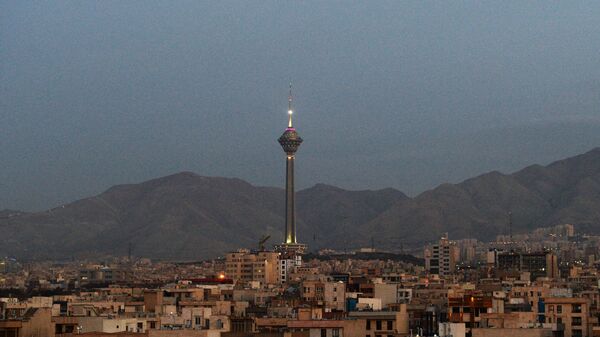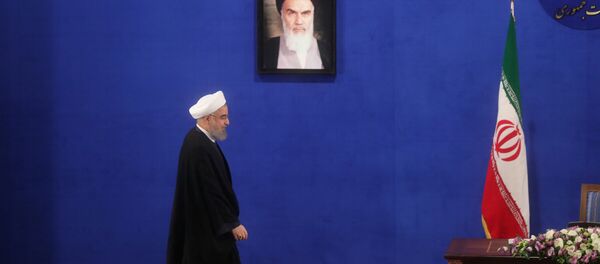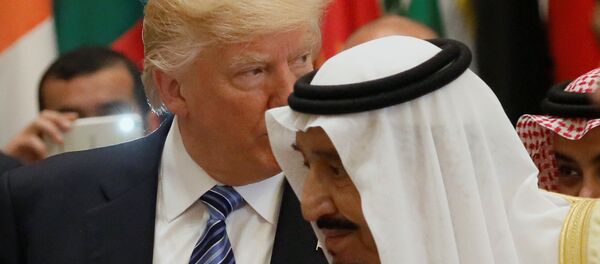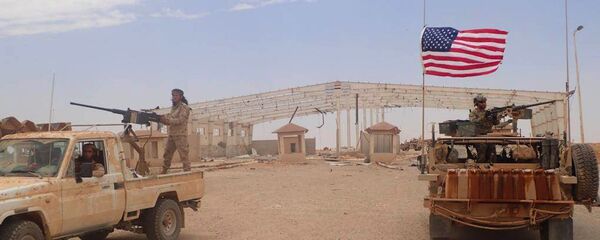Iranian Foreign Minister Mohammad Javad Zarif called Trump’s remark "repugnant" and said that "Iranians counter terror backed by the US."
"This terrorist attack happened only a week after the meeting between the US president [Donald Trump] and the [Saudi] backward leaders who support terrorists. The fact that Daesh has claimed responsibility proves that they were involved in the brutal attack," the statement read as quoted by Reuters.
This war of words between Washington and Tehran is nothing new. Iran has repeatedly accused the US of financing militant groups fighting against Tehran. In turn, the US has long regarded Iran as its principal rival in the Middle East.
During his speech at a recent summit in Riyadh, Trump accused Tehran of sponsoring terrorism and called to isolate the Islamic republic.
'Dark Prince' to Spy Against Iran
In May, The New York Times reported that the US appointed hardline CIA operative Michael D’Andrea, also known as the Dark Prince or Ayatollah Mike, as the new head of spy operations against Iran.
"He can run a very aggressive programme, but very smartly," Robert Eatinger, a former CIA lawyer, told the newspaper.
The move also reflects anti-Iranian sentiments among the member of the Trump team, including Defense Secretary James Mattis, CIA Director Michael Pompeo and national security adviser Herbert McMaster. Each of them has repeatedly stressed that Iran is a threat for US national security. The same policy is shared by the State Department and State Secretary Rex Tillerson.
Proxy War
On May 6, US warplanes attacked a Syrian Army motorcade moving to At Tanf, where US and British special operations forces have been training Syrian rebel fighters near the border with Iraq and Jordan. As a result of the strike, two servicemen were killed and 15 were injured. A similar incident also took place on May 18, killing six.
An operational headquarters of the allied forces of the Syrian government army, which includes the forces of Lebanon's Hezbollah as well as Iran, threatened the US-led coalition with a retaliatory strike following the attacks on Damascus positions.
Some experts believe that US-coalition forces are also ready for a direct confrontation.
"If I was Hezbollah, I would not underestimate the willingness of this administration … to kill Hezbollah in Syria," Frederic C. Hof, director of the Rafik Hariri Center for the Middle East at the Atlantic Council in Washington and previously a State Department liaison with Syrian opposition forces, told The Christian Science Monitor.
According to Egorchenkov, in fact a "proxy war" between the US and Iran in Syria has long been underway and now Washington is ready to "intensify" its activities.
"American unwillingness to confront Iran and its proxies in Syria, if obliged by circumstances, is a thing of the past. And Moscow would now have to anticipate with high likelihood aerial combat with US forces should it elect to provide tactical air support to Iran and its proxies on the ground," Hof said.
The Same Old Plan
According to Russian political analyst Vyacheslav Matuzov, the White House’s current policy on Iran reminds of the hardline policy by the George W. Bush administration.
"The Americans are fueling tensions in the Gulf and pitching Arab nations against each other. In Riyadh, Trump delivered a clear message that Iran is a sponsor of global terrorism and the main adversary of the Gulf monarchies," Matuzov said in an interview with RT.
According to the analyst, confrontation between Arab nations and Iran risks triggering very dangerous tendencies in the region.
"Any attempt to fuel a new conflict in the Gulf will lead to serious consequences for each of the parties involved. US conservatives had plans to redraw the Mideast map. Arab nations and Iran should not forget that," the expert said.




